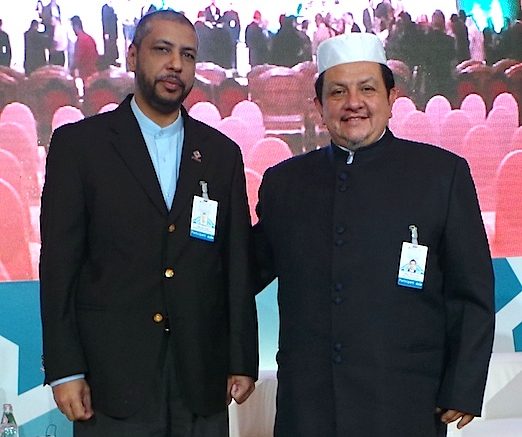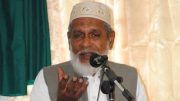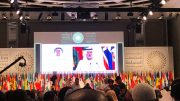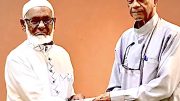“We, the 300 participants from over 70 countries on six continents – Jews, Christians, Muslims among other religions – met at the Doha Ritz Carlton for the Tenth Doha Interfaith Conference from April 23 to 25, 2013. We acknowledge the generous hospitality of HH Shaikh Hamad Bin Khalifa Al-Thani and of the State and people of Qatar, and pay tribute to the organizers of the conference, the Doha International Center for Interfaith Dialogue (DICID), the Ministry of Foreign Affairs and Qatar University.”
Doha International Center for Interfaith Dialogue (DICID) hosts an annual international conference that is attended by leading figures from different religions and research specialists in issues pertaining to interfaith dialogue. The 10th Doha Conference on Interfaith Dialogue, celebrated the tenth anniversary of establishing this annual conference on interfaith dialogue in Qatar by presenting to the world the work of interfaith at its best. Organizations, institutions, universities and NGOs working in the field of interfaith dialogue were invited to present their successful projects in this domain, and to display their best achievements during the event. The Doha International Award on Interfaith dialogue was granted for the first time to a person or institution that presented the best practice in the field of interfaith dialogue. The award amount was one hundred thousand US dollars (100,000 USD), in addition to a gold medal and a certificate from the Center. Out of the over 150 applications from individuals and organizations from every corner of the world, the award was granted to Dr. Muhammad al-Sammak of Lebanon while three individuals and three organizations were also honoured for their excellence and contribution to interfaith dialogue. In a special session after the inauguration, all the award winners hailing from Lebanon, Bosnia, United States, Morocco, Canada and Turkey shared their experiences with the participants.
The first Muslim delegate from the Caribbean to attend the conference, Suleiman Bulbulia of Barbados, highlighted that the event was certainly an eye opener to the several activities happening across the globe in inter-faith dialogue and action. He was extremely pleased to be there and to interact with Muslims, Jews and Christians all working together for the betterment of humanity. Several Christian and Jewish representatives attended from Latin America along with Sh. Imam Yahya Suqillo of Quito, Ecuador.
The Conference addressed four main themes, Academic, Justice, Conflict Resolution and Peace and Media Culture. In the Declaration of the Conference several important points under each of these themes were proposed.
– In the academic sessions, it was suggested that the search for common ground comes alongside the acknowledgement of difference and that the development of dialogical skills is not the same as development of debating skills. Teachers and families both have a crucial role in raising the youth with this interfaith spirit. Universities and general education authorities are encouraged to include interfaith education in their curricula.
– The speakers in the sessions on Justice presented new and important initiatives geared towards establishing social, environmental, economic and medical justice on different levels ranging from initiatives based in one part of a city to prospective global partnerships with the United Nations for protection – among other rights – of rights of religious minorities and their sacred symbols.
– All reports called for interfaith communities to continue cooperating constructively to find common ground in the creation of just societies through capacity building of religious and civic leaders for inspiring responsible male and female leadership. This can lead not only towards resolving conflicts in their own communities, but also towards rising above narrow tribal interests and contributing to resolving conflicts of other communities as well.
– With the penetration of media into our everyday lives, especially over the past decade, the power of harnessing personal stories in the public sphere has become increasingly important for promoting symbiotic coexistence in modern societies. One should recognize the usefulness of some technological tools when they are integrated into school teaching for raising interfaith sensibility and presenting a fair, truthful and attractive image of religions.
One of the highlights of the Conference was the address by Mr. Rashad Hussein, President Obama’s special envoy to the Organization of Islamic Cooperation (OIC), and the invitation from OIC to organize a follow-up meeting on UN Human Rights resolution 16/18. DICID said it hoped to host this meeting in the near future on the theme of “The protection of religious communities and their sacred symbols”.
The Declaration ended: “We urge the world community to denounce strongly any form of violence and persecution against religious scholars and leaders. The conference notes with great concern the ongoing violence against civilians and places of worship in Syria especially the abduction of Metropolitan Boulos Yazigi and Metropolitan Yohanna Ibrahim both of whom had intended to take part in this conference and who have made such important contributions to interfaith dialogue in the region and beyond.”





Be the first to comment on "Caribbean Delegate attends Interfaith Conference in Doha, Qatar"